9 Founders of Japan’s Iconic Automobile Companies
Japan’s automotive industry is renowned for its innovation, precision, and performance, which can be traced back to its founding visionaries who shaped the sector into the powerhouse it is today. Over the years, Japan has given the world numerous popular automotive brands such as Toyota, Honda, Nissan, and Mazda, among others.
The founders of Japan’s biggest automobile companies played a significant role in establishing the nation’s global reputation for quality, reliability, and innovation in the automotive sector.
Founders of Japan’s Major Automobile Companies
Toyota Motor Corporation
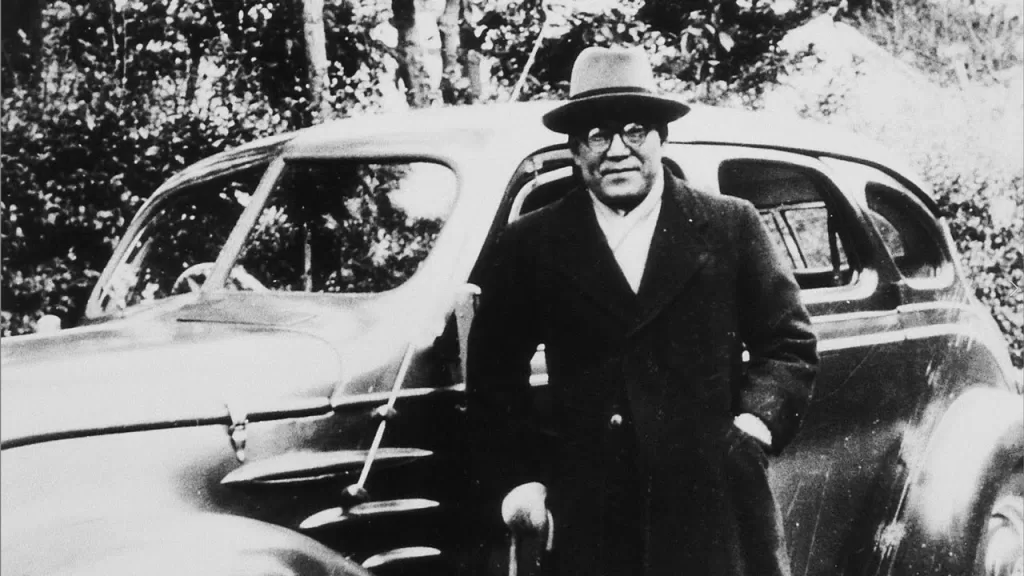
Kiichiro Toyoda is the founder of Toyota Motor Corporation, which is the leading automobile company in the world. Toyota has made a significant impact on the global automotive industry, with an extensive presence in Japan and other countries. Kiichiro started working as an assistant in his father’s company, Toyoda Loom Works, before establishing Toyota.
Nissan Motor Co., Ltd
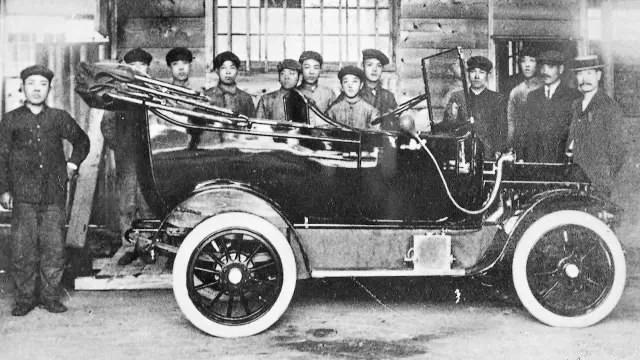
Nissan Motor Co., Ltd has become a major automobile manufacturer in Japan and around the world. As one of the most recognized Japanese car brands, Nissan has a significant presence in the automotive industry. It was founded in 1933 by Masujiro Hashimoto, Kenjiro Den, Rokuro Aoyama, Meitaro Takeuchi, Yoshisuke Aikawa, and William R. Gorham.
Honda Motor Co., Ltd
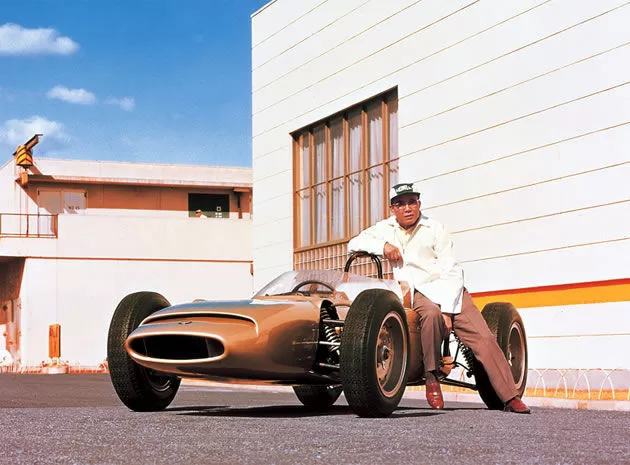
Soichiro Honda founded Honda Motor Co., Ltd in 1948. It is now a giant in the automotive and motorcycle industries. Honda, known for its innovative technology and reliability, possesses a prominent position in Japan’s automotive and cultural sphere.
Mazda Motor Corporation
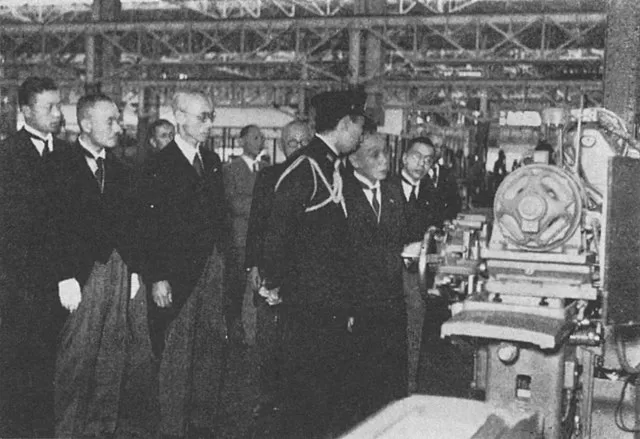
Established in 1920 by Jujiro Matsuda, Mazda Motor Corporation is another key player in the Japanese automotive industry. Mazda vehicles are known for their stylish design and advanced SkyActiv technology, which aims to improve fuel efficiency and performance.
Mitsubishi Motors Corporation
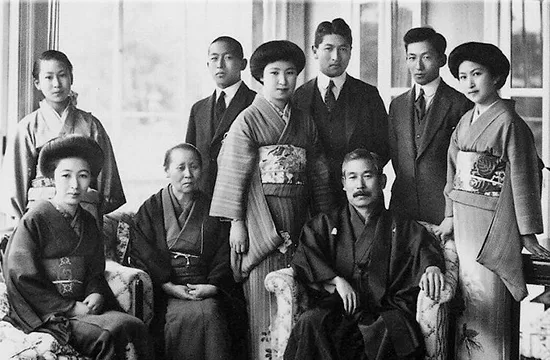
Mitsubishi Motors Corporation, founded by Yataro Iwasaki, has a long history in the automotive sector. Acclaimed for its technologically advanced vehicles, Mitsubishi is a valuable contributor to Japan’s automobile industry. The company not only focuses on passenger vehicles but also commercial vehicles and electric cars.
Suzuki Motor Corporation
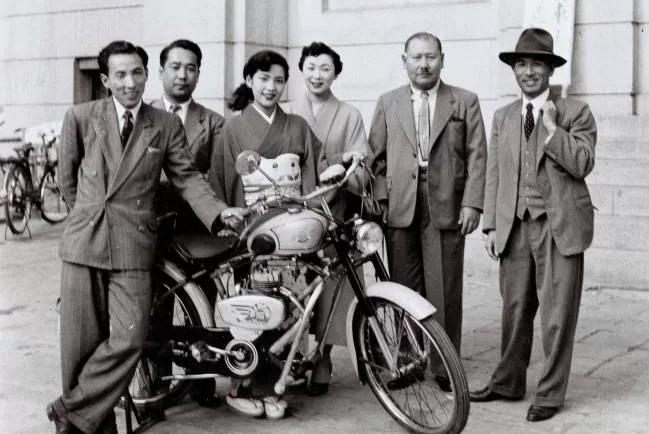
Michio Suzuki founded Suzuki Motor Corporation in 1909, initially producing weaving looms. Transitioning to the automotive industry years later, it has become a significant player, particularly in the Japanese Kei car market.
Subaru Corporation
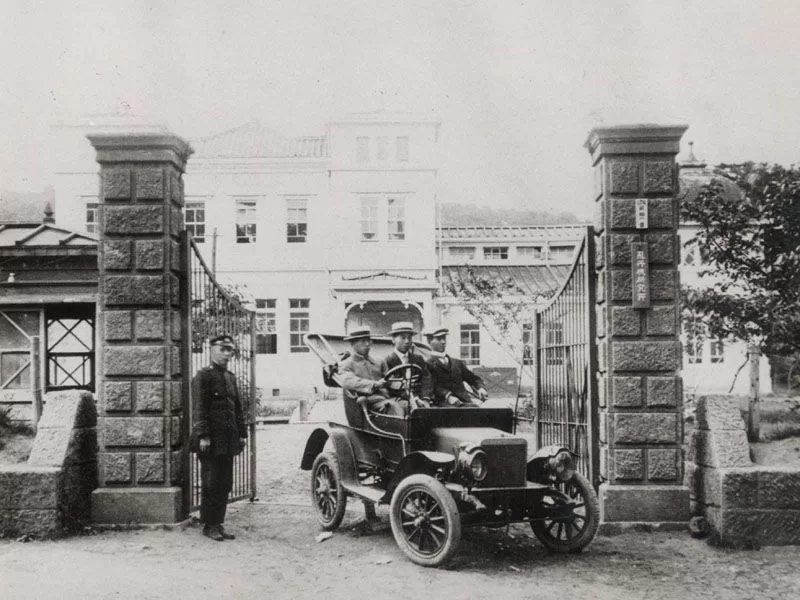
Subaru Corporation, founded by Kenji Kita, is renowned for its all-wheel-drive technology and boxer engines. Subaru is part of the larger conglomerate, Fuji Heavy Industries, which has a long history in Japan’s automotive sector. Subaru vehicles are popular for their reliability and performance.
Kawasaki Motors Corporation
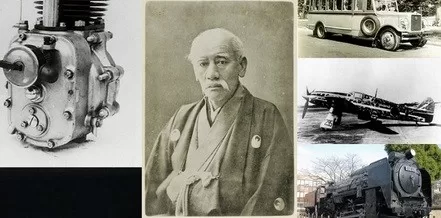
Kawasaki was founded in 1949 by Shozo Kawasaki, who had previously worked for the Kawasaki Heavy Industries shipbuilding division. The company’s first product was a motorcycle, the K1, which was released in 1950. Kawasaki quickly became one of the leading motorcycle manufacturers in Japan, and by the 1960s, it was exporting its products to other countries.
Yamaha Motor Company, Ltd.
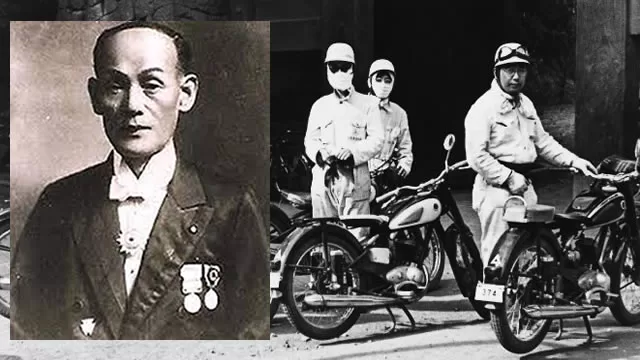
The company was founded in 1955 by Torakusu Yamaha, who had previously founded the Yamaha Corporation, a musical instrument manufacturer. Yamaha Motor began by producing small, two-stroke engines for use in lawnmowers and other small appliances. In the early 1960s, the company began producing motorcycles, and by the mid-1960s, Yamaha had become one of the world’s leading motorcycle manufacturers.
History of the Japanese Automobile Industry
Early Beginnings
The history of the Japanese automobile industry dates back to the Taisho era (1912-1926) when corporations started producing military trucks guided by the government and Imperial Army. In 1902, Komanosuke Uchiyama, a young technician, produced two trial automobiles after automobiles were first introduced in Japan. Later on, auto companies such as Toyota and Nissan commenced their operations.
One of the key players in the industry was Kiichiro Toyoda, who founded Toyota Motor Corporation in 1933 as a division of the Toyoda Automatic Loom Works, Ltd. Its first production car, the Model AA sedan, was released in 1936. Other major Japanese automobile companies would also emerge during this period.
World War II and Post-War Recovery
During World War II, the Japanese automobile industry shifted its focus towards the production of military vehicles to support the war effort. After the war’s end, companies like Toyota and Nissan continued to expand, and Japan became known for producing small, fuel-efficient vehicles crucial during post-war years. A restructured and more efficient industry began developing, and the Japanese government played a role in supporting the industry’s growth during the post-war period.
It was during this time that Japan’s car culture started to grow, and the automotive sector became a significant part of the country’s economy. Many of the most popular cars in Japan were introduced during this period, laying the foundation for the industry’s worldwide expansion in the years to come.
Global Expansion
The Japanese automobile industry began to expand globally during the 1960s and 1970s, with an emphasis on exporting fuel-efficient and reliable vehicles, such as the Toyota Corolla and Honda Civic. These Japanese cars quickly gained popularity for their quality, reliability, and affordable prices, and they began to compete with American and European car manufacturers in overseas markets.
Accessibility to Japanese cars grew, and car rental services offered a wide range of vehicles produced by these companies, enabling individuals to experience the quality of Japanese vehicles directly.
As a result, Japanese manufacturers expanded their production facilities worldwide and opened new factories in countries like the United States, creating a truly global presence.
Today, Japan’s automobile industry continues to be an essential part of its economy, and its automotive exports have become a key component of the global automotive landscape.
Manufacturing and Technology Advancements
Japanese Car Production
Japan’s automobile industry has made significant strides since its inception, turning it into one of the world’s leading automotive producers. The founders of the Japanese automotive industry have built an impressive legacy, with manufacturers like Toyota, Honda, Nissan, Mazda, and Yamaha Motor at the forefront. Japanese car production saw a major boost in the 1960s and has since remained among the top three countries with the most manufactured cars.
One aspect that sets Japanese car production apart is its dedication to quality and efficiency. Companies like Toyota have adopted the Toyota Production System, a revolutionary manufacturing method rooted in streamlining processes and eliminating waste. Furthermore, Japanese manufacturers have been known to prioritize collaboration, leading to strategic partnerships and shared technological advancements among luxury brands and mainstream manufacturers.
Research and Development
Innovation and continuous improvement have become the hallmarks of the Japanese automobile industry. Investing heavily in research and development (R&D), Japanese manufacturers have consistently pushed the boundaries of automotive technologies. Some of the most popular cars in Japan reflect the results of this extensive R&D, showcasing remarkable fuel efficiency, robust engines, and cutting-edge safety features.
Engineers play a critical role in the R&D process, developing new advancements in engine design, lightweight materials, and alternative fuel technologies. Automobile manufacturers in Japan are especially keen on exploring the potential of hybrid and electric vehicles, while also enhancing gasoline engines’ performance to meet ever-rising fuel efficiency standards and reduce emissions.
Adoption of New Technologies
Embracing technological advancements has been an integral part of Japan’s automotive success. As a result, Japanese car manufacturers have been early adopters of advanced technologies, benefitting from both the domestic market’s proclivity for technological innovation and the technology-rich culture of the country.
Japanese manufacturers have led the way in areas such as advanced driver assistance systems (ADAS), infotainment, and connectivity features. In fact, modern Japanese rental cars often feature the latest safety and convenience technologies. More importantly, the entire transportation infrastructure of Japan, including the famous JR Pass system, showcases the country’s commitment to integrating technology into every facet of life. This environment has fostered a competitive atmosphere that constantly pushes the Japanese automobile industry to develop and implement new technologies, ensuring that the nation remains at the forefront of automotive innovation.
Japanese Automobiles in the Global Market
Expansion into Foreign Markets
Japanese automobile companies have expanded their presence in foreign markets such as America and Europe since the 1960s. This global expansion has been driven by several factors such as innovation, affordability, and reliability of Japanese cars. For example, Toyota and Honda have established manufacturing plants in America, resulting in the production of automobiles tailored to the local market.
Reputation and Quality
Japanese automobile manufacturers have a solid reputation for producing reliable cars. This reputation stems from a strong focus on quality control and manufacturing processes that prioritize customer satisfaction. In addition to their reliability, Japanese vehicles are known for their fuel efficiency and environmentally friendly design, providing consumers with cars that are both cost-effective and sustainable. This commitment to quality has allowed Japanese brands like Toyota, Honda, and Nissan to become household names in several countries.
Competing with Other Manufacturers
In the global auto industry, Japanese manufacturers face competition from American and European carmakers. Despite this, they have remained successful by continuously evolving their product lines to meet market demands and staying up-to-date with changing consumer preferences. They have also invested in developing new technologies, including electric and self-driving vehicles, to stay ahead of the competition.
Furthermore, Japanese automakers have consistently marketed their vehicles as being more reliable and fuel-efficient than their competitors, appealing to consumers who prioritize these features. In addition, their manufacturing efficiencies have allowed them to produce vehicles at competitive prices while still maintaining quality, making their products attractive to consumers in various countries, including the Tokyo market. As a result, Japanese car brands have become a major force in the global automotive market, earning a strong share in markets across the world.
Impact of the Japanese Automobile Industry
Employment and Economy
The Japanese automobile industry has had a significant impact on the country’s employment and economy. The sector has created numerous jobs in manufacturing, sales, and service, while also contributing to the overall GDP growth. Many prominent automotive brands such as Toyota, Honda, Nissan, and Mazda, originated from Japan. These companies have set up multiple production facilities, providing stable employment opportunities to the local population.
The industry’s success has also boosted the Japanese car culture, leading to domestic and international demand for made-in-Japan vehicles.
Contribution to the Domestic Market
Japanese automobiles cater to both the domestic and international markets. Locally, popular cars are developed based on the needs and preferences of Japanese consumers. Reliable, fuel-efficient vehicles are among the top choices for domestic use. Japan is also known for its unique Kei cars, which offer compact, energy-saving solutions for urban mobility. Kei trucks, for example, are not only popular in Japan but are now being imported to the US as well.
In addition to the production and sale of automobiles, the industry also contributes significantly to the Japanese travel sector through car rental services, enhancing the overall domestic economy.
Presence in International Markets
Japan enjoys a strong presence in international automobile markets through its high-quality products and innovative technologies. Japanese automotive brands are recognized worldwide for their reliability, safety, and fuel efficiency. These features make them popular choices among global consumers, driving exports to various countries.
Japanese automakers have also invested in production facilities outside Japan, further strengthening their international presence. The success of Japanese automobiles in foreign markets can be attributed not only to the quality of the vehicles themselves but also to the marketing strategies and customer-centric approach adopted by these companies.
Through its impact on employment, the economy, the domestic market, and global presence, the Japanese automobile industry significantly contributes to the country’s overall progress and development. With innovations such as hydrogen fuel cell vehicles and autonomous driving technology, the future of the Japanese automobile industry remains bright, promising continued growth both at home and internationally.
Stories You Will Also Like
Tourist Arrivals to Japan Plunge Amid Rumors of July 2025 Disaster
Japan Unveils Solar Super Panel Project Targeting Power Output Equal to 20 Nuclear Reactors
Honda Tadakatsu Japans Legendary Samurai Who Fought 55 Battles Without Injury